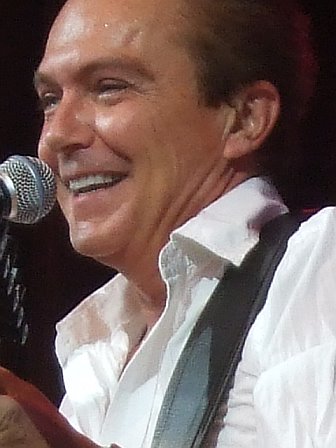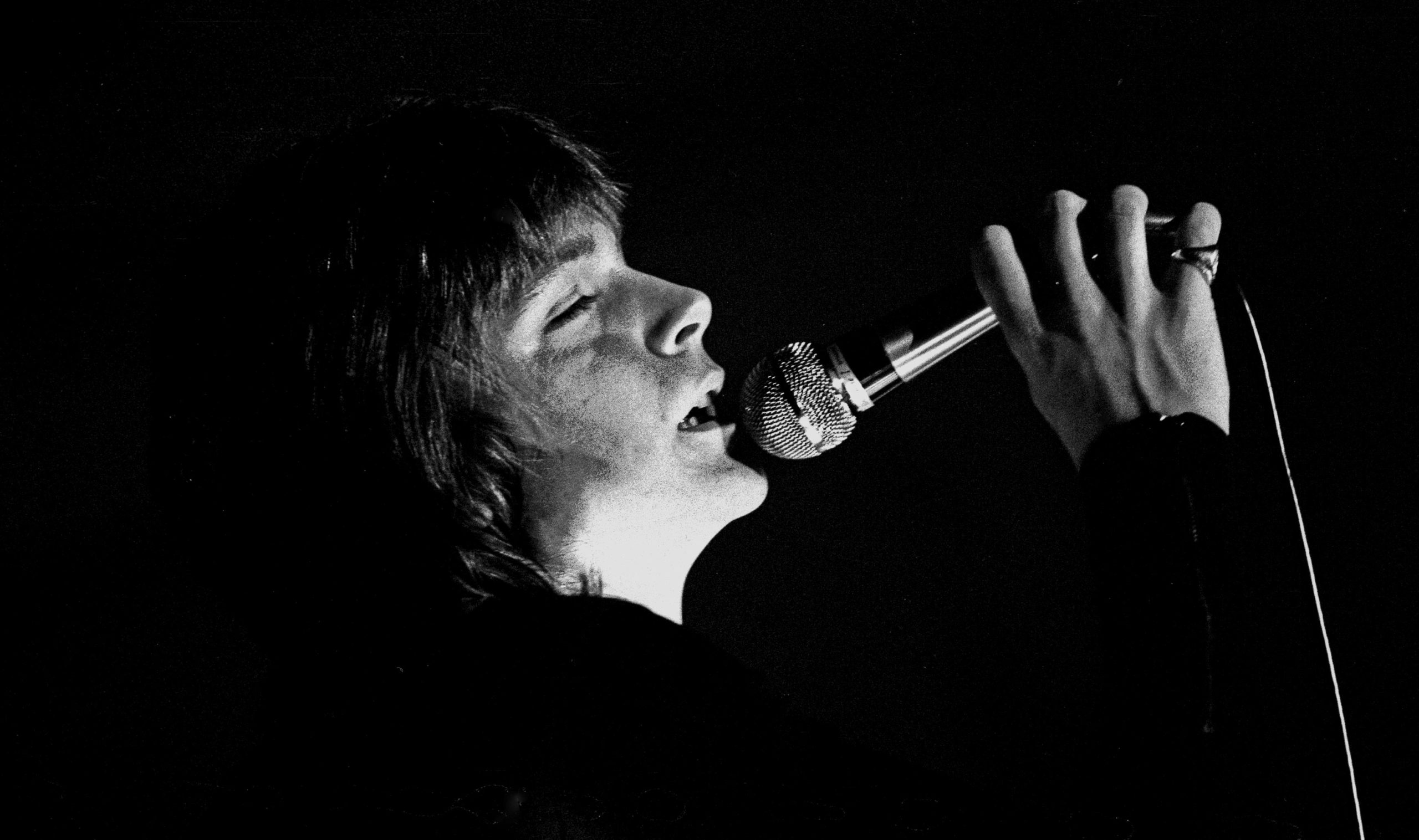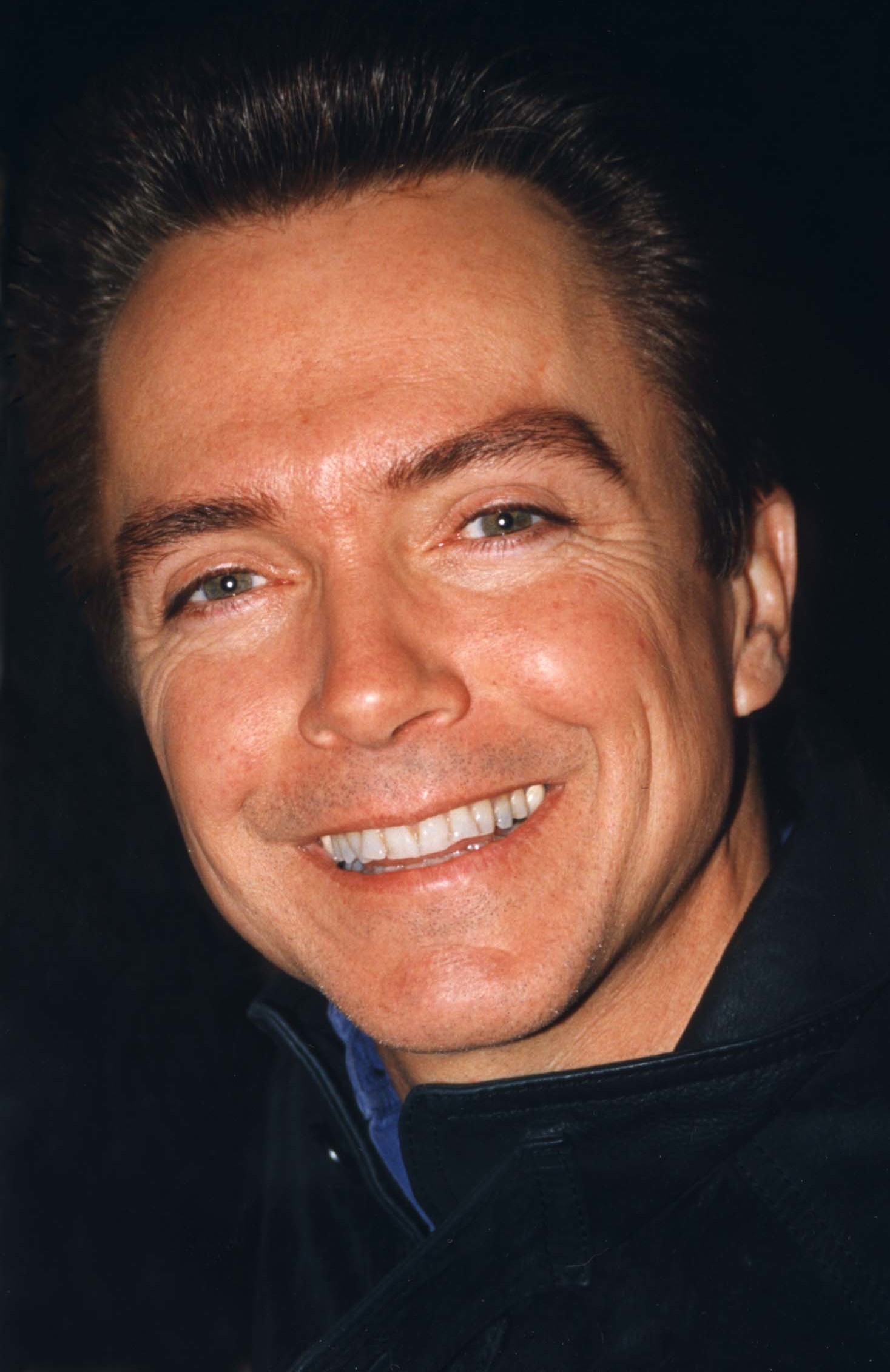When one thinks back to the pantheon of ultra-hyped superstars in music history, names that instantly come to mind as the pioneers of that uber-level of fame are of course Elvis Presley, The Beatles, and perhaps maybe Frank Sinatra – all artists we clearly remember as leading the way as far as the stratospheric hype at the height of their popularity.
One name that might not automatically come to mind, at least not as quickly as the legends above, but one who equaled and in some ways even surpassedthe level of fame of those icons at the height of his own popularity, is none other than 70’s pop culture phenom David Cassidy. Yes, the blue-eyed heartthrob and star of “The Partridge Family” was also one of music’s most hugely hyped and globally marketed pop stars, with “Cassidymania” actually outnumbering those four Liverpuddlian mop tops and those two kids from Tupelo and Hoboken as far as actual fan club members, while also selling out 70,000-seat stadiums (a huge feat for an artist back then), headlining at iconic venues like Madison Square Garden (which he sold out in two minutes), and having his likeness on everything from lunchboxes and posters to dresses (yes, dresses) and more.

But David Cassidy gets the fleeting nature of being a pop superstar and is grateful he could have an impact on people during the height of his career, a career that still gets him adoration from fans in the present day.
“You’re only a fresh face once. And everybody, every huge star, including Elvis, including The Beatles and even Sinatra, those were the individuals who I was compared to, because I had the largest fan club in history. Once you understand that, and the impact, it’s an incredible thing for me now because I hear it and I get it from people almost every day, I get it back in spades. It’s a really wonderful thing to know that you’ve impacted people’s lives in a positive way. You brought light, you brought joy, you brought happiness, and a certain imagination.”
Forty-plus years apart from his time at the top, David Cassidy still retains some of that intense pop singer popularity, if not at the level it was back then, but to the surprise of many also continues to have a modestly successful career into his 60’s, including singing, acting, and even giving time to a cause near and dear to his heart: Alzheimer’s disease awareness. These days, Cassidy is a very busy man, always on the go and with a rigorous tour schedule that includes a stop this Saturday at one of his personal favorite venues, Alexandria’s own Birchmere, as he takes his audience on a musical journey of his life, replete with those classic Partridge Family hits.

So whatever happened to the early career of the then-world-famous “Keith Partridge-esque” version of David Cassidy? Cassidy’s fame would turn out to be a double edged sword — as he became a huge star on The Partridge Family, his career as a pop star would also rise to almost unheard-of levels, and during our very candid interview on the phone from New York City, Cassidy spoke honestly about why he simply left that part of his life behind, right at the height of his incredible popularity.
“I walked away. What most people don’t realize or didn’t understand at the time, the last world tour when I was playing stadiums, I lived in this eye of the hurricane for five years. I worked 16 to 18 hours a day, 7 days a week. I was mentally and physically exhausted, literally every lunchtime I was doing interviews and photo sessions, I never had a free moment for me. So I announced that I was gonna leave it at the top, at the time I was playing to 50-60-70 thousand people. I’m the guy that walked away. I knew there was no way for me, ya know, ‘can you top this, can you top that’, physically and mentally I just couldn’t sustain it. I was really the first globally marketed individual, and I got robbed of my own identity by the marketing and the visual of watching me on that television show, and comic books, everything you could possibly imagine. [The Partridge Family] was the biggest selling and most financially successful television show of all time at that moment. Much of it had to do with the many millions and millions of albums and singles, I mean, my first three or four albums were triple platinum. It’s nutty! So when you’re thinking in terms of…it was global. Everywhere in the world I went, it was impossible for me to separate…have the public perceive me as me, so I walked away from it.”
A part of having that huge level of fame was having famous friends, and none was as famous as John Lennon. Cassidy recalls with much affection and fondness his burgeoning and eventually lasting friendship with the famous Beatle.
“John and Yoko had a friend who was a very close friend of mine, and he brought John over to my house. He just walked in, and it was New Year’s Eve, and I remember I was in the kitchen and Susan Dey [who played Cassidy’s sister Laurie Partridge on the TV show] tapped me on the shoulder and said, ‘David, there’s a Beatle in the house!’ Later, we would go into my music room, we start playing, and I of course instantly go back to the early Beatles songs that I first learned, and since then he had written another 500 songs and hadn’t played with the Beatles in however long, so I retaught him a couple of the early Beatles songs! Please Please Me, some others. John was musically my hero, but what I also loved about him was he had a remarkable sense of humor, a great passion for life. He’s probably the most unique person I’ve ever met. To get to meet him, to get to know him, to get to play with him. And I remember one of the most amazing compliments I ever heard, they were asking John about the early days of The Beatles, and he said, ‘Oh don’t ask me, I don’t remember, ask David Cassidy, he was bigger than we were.’ I read that and I went, ‘Oh my God, how did that happen?’ It was such a great experience for me to get to know him.”
After walking away from his immensely popular pop star persona, Cassidy didn’t work for close to three and a half years. Least not in the pop star mode, that is.
“I wrote and I produced music, but I didn’t try and compete with my fame. I tried to go back to what originally had made me successful, (my acting), and I went back and worked in class and in theater, and I began carving out a completely different career. I knew I could never compete with that time.“
Cassidy was clearly one of the better actors on The Partridge Family along with stepmom Shirley Jones, but that’s no surprise considering his early acting resume, which included appearances on iconic 70’s TV shows like Ironside, Marcus Welby MD, Bonanza and Adam-12, all before his turn as dreamy Keith Partridge.He would even be nominated for an Emmy in 1978 for an appearance on NBC’s Police Story. Clearly, the acting bug cultivated by his father, accomplished actor/singer Jack Cassidy, was a talent he inherently possessed, and as his father would remind him, talent was what it was all about.
“My father gave me some advice the day I was playing Madison Square Garden. He’d been in the business at the time about thirty years, I’d been in it only about three or four years. His words to me were, “Talent is the only commodity that survives. Talent will survive. Someday this is all gonna go away, and it’s gonna get very difficult for you. So do not ever, ever, give up on that.’ ”

And give up he hasn’t. In recent years, Cassidy has overcome personal challenges including substance abuse, remaining consistently active in his musical and acting careers throughout the years, and showing no real signs of slowing down. His pursuit of a lawsuit against Sony regarding the rights to his likeness continues (“It’s just a matter of, in my opinion, extraordinary greed”), and he has also become a passionate and involved advocate of the Alzheimer’s Association, not surprising given that his mother Evelyn has the disease.
“My mother (who’s 89), she’ll utter a word now and then, you have to ask her five times. What’s so sad about it, is that years ago before we were really understanding the disease, it used to be like, ‘Oh there’s crazy Uncle Eddie”, they called it senility. Well, it’s in fact a disease. And we’re about to face an epidemic. We’re nearly there because the eldest baby boomers reached 65 years old in 2001. The truth of the matter is we should have been doing this thirty years ago, now we’re trying to play catch-up when we’re about to face a tidal wave. Knowledge is power, we need to just, like, open the doors, and go, ‘Hey, it’s OK.’ We understand. This is a disease, you can’t help it, it’s not your fault.’ It doesn’t choose individuals with higher intellect, or by color or creed or anything else. It’s just a horrible, horrible disease. We gotta act. We gotta act now.”



